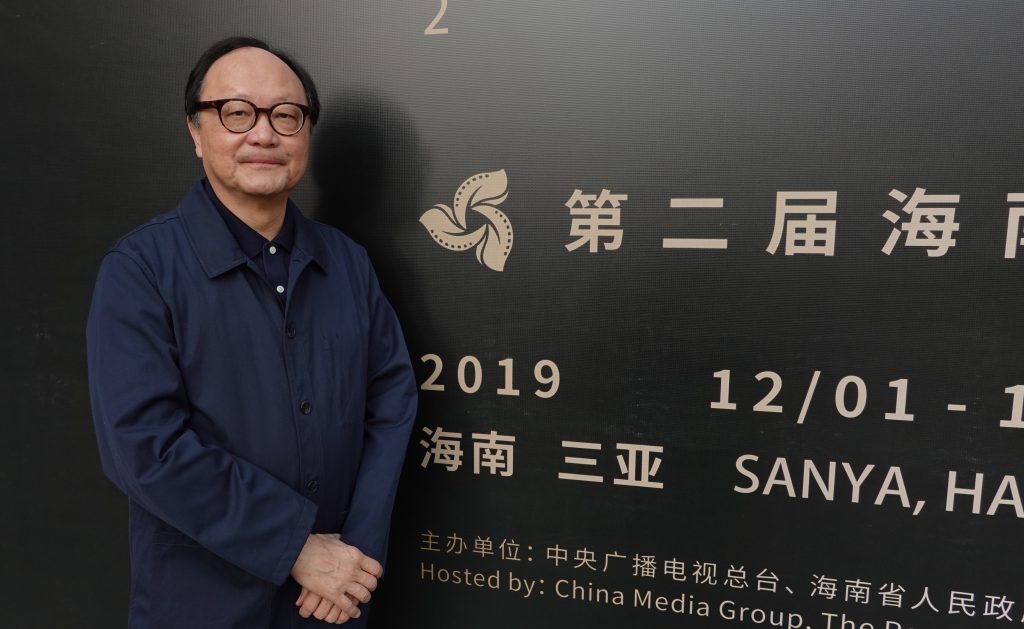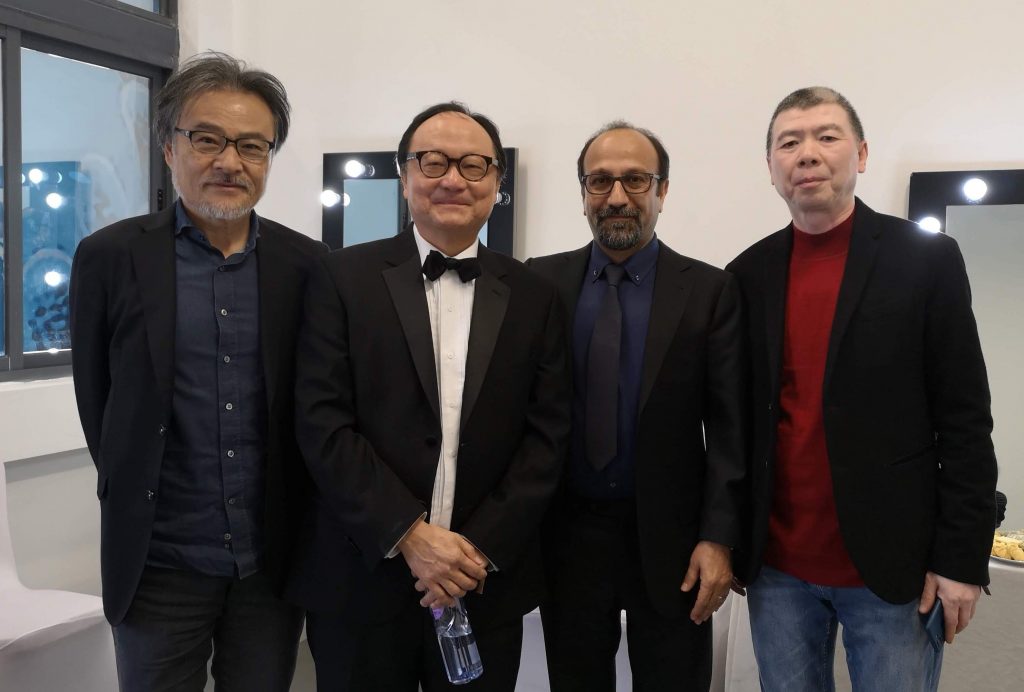Industry veteran Roger Garcia looks to the present – and the future – during a year full of changes.

Roger Garcia at the 2nd edition of Hainan Island International Film Festival, where he takes on the role of Artistic Director. Photo courtesy of Roger Garcia
The COVID-19 pandemic has forced a global rethink in terms of the way events are being organised and presented, with the film festival circuit providing a case study of how a “new normal” might just be evolving.
Last month, the Toronto International Film Festival revealed it would adopt a hybrid film festival model for its upcoming edition in September. This would entail scaled-down in-person activities and digital film screenings, along with virtual red carpets and industry conferences and this could be a model for other major film festivals to follow.
Already other festivals have made necessary adjustments.
Last month Cannes staged the Marché du film Online, the first time the festival had moved into the virtual realm in its 73 years. Meanwhile the Far East Film Festival (FEFF), usually hosted in Udine, Italy, went completely online last week for its 22nd edition for virtual film screenings, its project market, its Campus programme as well as its daily press conferences with filmmakers.
“The hybrid film festival is the festival of the future,” said Roger Garcia, who has more than 40 years of experience working with international film festivals, including FEFF. Garcia is also the artistic advisor of the Hainan Island International Film Festival (HIIIF), which remains scheduled to take place on the southern Chinese island in December.
Garcia, who typically visits a minimum of a dozen major international film festivals per year, has definitely felt the impact of COVID-19 enforced restrictions. With many major film festivals being postponed, Garcia has found himself being confined to less immersive events. While Garcia would normally attend the Cannes’ International Critics’ Week and the Directors’ Fortnight, this year he was limited to watching films via market screeners.
“This takes away the ability to watch quite a lot of films that I would seriously consider for our festival in Hainan. The pandemic has definitely affected the viewing and scouting of films, and more importantly, the human interaction and relationships which we normally engage in at a festival,” said Garcia during a virtual interview while he “attended” FEFF online.
For the upcoming edition of HIIIF, Garcia is in talks with the festival’s director as they consider adopting a hybrid version of the festival. This would include a series of physical screenings with social distancing for the local Hainan audience along with some guests and audience from the rest of China. “It’s also possible that there will be travel bubbles between Southeast Asia and Hainan should the (COVID-19) situation in Asia improve,” Garcia explained.

Roger Garcia (2nd from left), along with filmmakers (L to R) Kiyoshi Kurosawa (Japan), Asghar Farhadi (Iran) and Feng Xiaogang (China). Photo courtesy of Roger Garcia
Along with a physical film festival, Garcia also hopes to carry out online screenings with carefully curated programming to reach a wider audience, beyond Hainan. Instead of solely offering an accessible slate of films for the online film festival, Garcia aims to also challenge audiences by including some original and unconventional works within his programming. “I believe an online programme should also include more difficult material, including experimental films and documentaries that people wouldn’t normally watch,” he said.
After each film screening, there should ideally be a question-and-answer (Q&A) session to connect filmmakers with audiences “wherever they are, whoever they are,” said Garcia.
On the whole, the online programme serves as an extension of the physical film festival that can educate and expose a larger community to films that they would otherwise not have been able to see. “If we could get more people involved in watching these films online, then I think we are making advances into the next cycle of film festival history,” added Garcia.
In this cycle, many film festivals have been forced to embrace digital means in their film festival operations and thereby improve their grasp of technology. For FEFF, this entailed liaising with streaming platform MYmovies.it to host their 46 films online over the course of nine days, keeping each filmmaker up to date on the evolving situation and to renegotiate for films to be screened online, re-planning a Campus programme for young journalists who were based in seven regions – all while Italy was at the epicenter of the coronavirus crisis. The festival, which concluded last week, managed to reach out to 3,000 accredited pass holders from 45 countries, many of whom remain engaged with the festival through social media and the voting of films.
“What is happening now is the climax of a development that was culminated by people consuming films through online streaming,” said Garcia. “This would have happened anyway, in maybe another five years, but COVID-19 has accelerated things in a way we wouldn’t have thought possible even last year.”
Garcia noted that many film projects were also being developed, along with project deals being clinched, during the COVID-19 downtime and these might help ease the recovery of cinema in the long term. He predicted Asia would most likely be the first continent to be out of the pandemic. “I think China also has a good grip on the COVID situation and they could return to normalcy before the rest of the world,” said Garcia. And if that is so, we can then hopefully see an uptake of the cinema market there.”
While social distancing will continue to be the norm for cinema-goers in the short-term, Garcia proposed that a big and unique cinematic experience could draw a flood of cinema-goers back into the theatres post-COVID.
With the coronavirus situation still plaguing most countries and travel restrictions still in place, Garcia foresees that most physical film festivals may only return early next year. But lessons will have been learned.
“We’d be foolish to turn down the opportunities offered by technology,” said Garcia. Garcia is embarking on an upcoming project The Once and Future Man that he has conceptualized and will produce, along with award-winning Singaporean filmmaker Yeo Siew Hua, who is the project’s writer and director. The Once and Future Man combines film and artificial intelligence (AI), and will be accompanied by live music by the Berlin Philharmonic orchestra. Garcia is hoping to premiere The Once and Future Man at film festivals in the later half of next year.
A hybrid project in a unique era could just be among the big cinematic events that Garcia believes will bring the crowds back to the theaters.
Adora Tan was part of the 2020 FEFF Campus programme
To see more, please visit the Far East Film Festival’s website.





